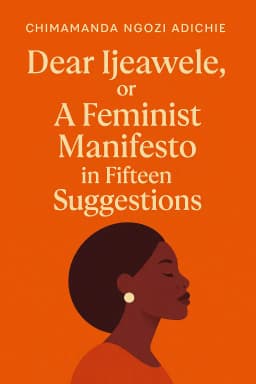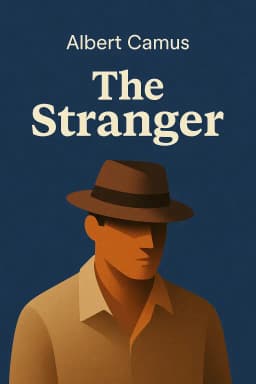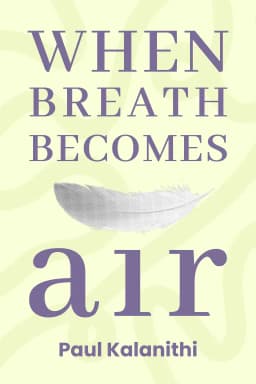
Sartre: The Terror of Total Choice
Golden Hook & Introduction
SECTION
Michael: Alright Kevin, quick—what do you know about Jean-Paul Sartre's Being and Nothingness? Kevin: I know it's the book everyone buys to look smart, but it's so heavy you could use it as a doorstop or, in a pinch, a defensive weapon. And that the title sounds like the world's most depressing buddy-cop movie. Michael: A defensive weapon is about right! It's a kilogram of pure philosophy. And you're not wrong about the depressing part, but what's wild is that Jean-Paul Sartre wrote this masterpiece, Being and Nothingness, in 1943, in Nazi-occupied Paris. Kevin: Whoa, hold on. That context changes everything. So this isn't some professor in a comfy chair just thinking deep thoughts. This is a man writing about freedom while living under one of the most oppressive regimes in history. Michael: Exactly. This wasn't just an academic exercise; it was a philosophical rebellion written under the nose of tyranny. It’s about finding freedom when you literally have none on the outside. Kevin: That makes the ideas feel so much more urgent. It’s not just a thought experiment. Michael: Precisely. And that urgency is the perfect place for us to start, because Sartre hits us with one of the most famous and unsettling phrases in all of philosophy.
Condemned to Be Free: The Shock of Absolute Choice
SECTION
Michael: He says that human beings are "condemned to be free." Kevin: Condemned? That sounds like a contradiction. Isn't freedom supposed to be the ultimate prize? That sounds like winning a cursed lottery. Michael: It does. But for Sartre, it’s a condemnation because it’s total and inescapable. He argues that for objects, like this table, its essence—what it is—comes before its existence. It was designed as a table. But for humans, it's the other way around. "Existence precedes essence." Kevin: Okay, break that down for me. What does that actually mean in plain English? Michael: It means you are born without a pre-programmed purpose. There's no human nature, no divine plan, no blueprint for who you're supposed to be. You are thrown into the world, you exist, and then, through your choices, you define yourself. You create your own essence. Kevin: So there’s no instruction manual. We’re just… here. And we have to figure it all out from scratch. That’s terrifying. Michael: It is! And that terror of total responsibility is what we spend most of our lives trying to escape. Sartre gives this brilliant example to illustrate it: the waiter in a Parisian café. Kevin: Ah, I feel like I know this guy. Michael: You do. Sartre watches this waiter and notices his movements are a little too… perfect. A little too precise. He carries the tray with a rigid stiffness, he bends toward the customers with an eagerness that's just a bit over the top. His voice, his eyes, everything expresses an interest in the customer's order that is just a little too much. Kevin: He’s trying too hard. He’s performing “waiter-ness.” Michael: Exactly. He’s not just a man who happens to be a waiter; he is trying to be the role of a waiter in its entirety. He’s acting. And Sartre asks, why? Kevin: I mean, maybe he just wants a good tip? Isn't he just being a good employee? I want my waiter to be a 'waiter.' Is Sartre saying we should all be bad at our jobs? Michael: That’s the brilliant question. For Sartre, it’s not about the job itself. The problem is that the waiter is using the role as a hiding place. He is so completely immersing himself in the social construct of "a waiter" that he can forget the terrifying truth: that he is a free man who could, at any moment, drop the tray, walk out, and do anything else. He’s hiding from his own freedom. Kevin: So he’s put on a costume, and he’s trying to convince himself the costume is his actual skin. Because if it’s just a costume, he has to choose to keep wearing it every single second. Michael: You've got it. He’s trying to become an object—a "waiter-thing"—because objects don't have to choose. They just are. And that attempt to flee from freedom by pretending to be an object is the central drama of human life for Sartre.
Bad Faith: The Art of Lying to Ourselves
SECTION
Kevin: Okay, so we run from our freedom by playing these roles. That sounds like a very elaborate form of self-deception. Michael: It is. And Sartre has a fantastic term for it: mauvaise foi, or "Bad Faith." It's the art of lying to yourself, and according to Sartre, we are all masters of it. Kevin: I feel personally attacked, but please continue. How does this bad faith work? Michael: It works whenever we pretend we are a thing instead of a person. Whenever you say, "Oh, I can't help it, I'm just a shy person," or "I had no choice, my boss made me do it," or "That's just who I am." You're acting in bad faith. You're treating yourself like a rock that can't change its nature, rather than a free consciousness that is choosing its actions in every moment. Kevin: Right, you're denying your own agency. You're saying "I am a finished product," instead of "I am a work in progress that I am actively building." Michael: Precisely. And this leads to what Sartre calls "anguish." Anguish is that dizzying moment of awareness that you are completely, totally free. To show this, he uses the example of a gambler. Kevin: Oh, I like this. Michael: So, a gambler has a terrible streak of losses. He ruins his family, he's in despair. He stands before himself and makes a sincere, heartfelt resolution: "I will never gamble again." He truly means it. Kevin: I've been there. Maybe not with gambling, but with a bag of potato chips at midnight. I know this feeling. Michael: We all do. The next day, he walks past the casino. He approaches the gaming table. And in that moment, what happens to his resolution from yesterday? Kevin: It’s… gone? It feels like a distant memory from a different person. Michael: It's nothing. It's completely powerless. He realizes with a sickening lurch that the person who made that promise yesterday has absolutely no control over the person standing at the table right now. He is free to gamble. He is free not to gamble. Nothing is determining his choice. That feeling of vertigo, of seeing the total inefficacy of his past self, is anguish. Kevin: Wow. That's every New Year's resolution ever. It's the feeling of watching yourself eat the cookie you swore you wouldn't. You're a spectator to your own failure. So anguish, for Sartre, is that moment you realize the pilot's seat is empty, and it's always been you at the controls, even when you pretend it isn't? Michael: That's a perfect way to put it. It’s the anguish of realizing you are the author of your life, and you can't blame the character you wrote yesterday for the lines you're choosing to say today.
The Gaze of the Other: When Freedom Collides
SECTION
Michael: But this whole internal drama of freedom, bad faith, and anguish gets a thousand times more complicated the second someone else walks into the room. Kevin: Of course it does. People ruin everything. Michael: Sartre would agree, in a way. He has this concept called "The Look," or Le Regard. It’s one of his most powerful ideas. Let me paint you a picture. Imagine you're home alone. You put on your favorite, most embarrassing music, and you are dancing around the living room, just completely lost in the moment. You are pure, un-self-conscious joy. You are the center of your own universe. Kevin: I'm with you. This is a regular Tuesday for me. Michael: And then, out of the corner of your eye, you see a face in the window. A neighbor. Just watching you. What do you feel? Kevin: Oh, the worst. Absolute, gut-wrenching, hot-faced shame. You freeze. You instantly feel like a complete idiot. Michael: Exactly. But Sartre asks, what philosophically just happened? It's more than just embarrassment. In that moment, you have been transformed. You cease to be the free subject at the center of your world, and you become an object in their world. Kevin: I'm no longer just "me, dancing." I'm "Kevin, that weirdo who dances badly." My identity has been hijacked. Michael: Your identity has been hijacked! You are suddenly aware of yourself as you imagine they see you. Your world, which was your private kingdom, has been breached. You've been objectified. And for Sartre, this is the fundamental nature of all human relationships. Kevin: That is incredibly bleak. So all our interactions are just a battle to not be turned into an object by someone else's gaze? It’s a constant struggle over who gets to be the main character? Michael: In a sense, yes. He famously wrote in one of his plays, "Hell is other people." This is what he meant. Not that people are necessarily malicious, but that their very existence as another consciousness turns you into a thing, and this creates an unavoidable conflict at the heart of all relationships. We are constantly negotiating this tension between our own freedom and being an object for the other. Kevin: It explains so much about social anxiety, about why we feel so self-conscious. It's not just in our heads; it's this fundamental collision of two free consciousnesses. Michael: It's a battle of freedoms. And recognizing that battle, without fleeing from it, is part of the challenge he sets for us.
Synthesis & Takeaways
SECTION
Michael: So when you put it all together, you get this intense picture of the human condition. You have this radical, terrifying freedom. You have this constant temptation to escape it through the self-deception of bad faith. And you have this permanent, built-in conflict with other people who threaten to turn you into a thing with their gaze. Kevin: It sounds like a recipe for a miserable life. Where's the upside here? Michael: The upside, for Sartre, is authenticity. The philosophy is descriptive, not prescriptive. He's not telling you how to live. He's describing the terrain as he sees it. And he believes that only by acknowledging this difficult truth—the terrifying freedom, the temptation of bad faith, the conflict with others—can you even begin to live an authentic life. Authenticity is choosing your path with full awareness of this reality, not by pretending it doesn't exist. Kevin: So it’s not about finding happiness, it's about embracing the struggle. It's about being honest about the weight of our own choices. It's heavy, but it leaves you with a really powerful question to ask yourself. Michael: What's that? Kevin: In what areas of your life are you just playing a role? Where are you being the 'waiter'? Where are you hiding from your own freedom by saying, "this is just who I am"? Michael: That's a tough question to sit with. It forces you to look at the "costumes" you wear every day. We'd love to hear your thoughts on this. Join the conversation with the Aibrary community and let us know what this brings up for you. Kevin: This is Aibrary, signing off.









